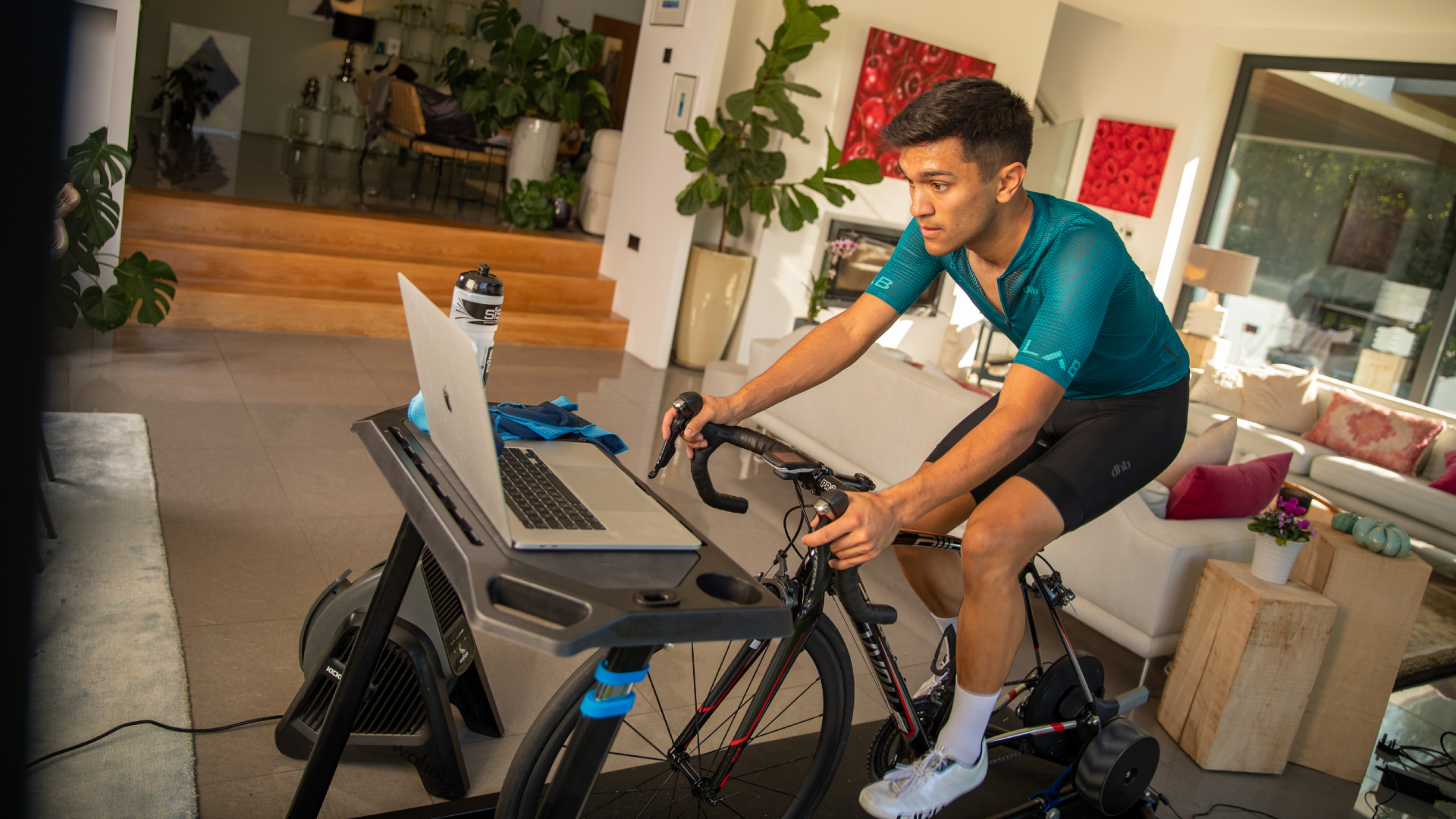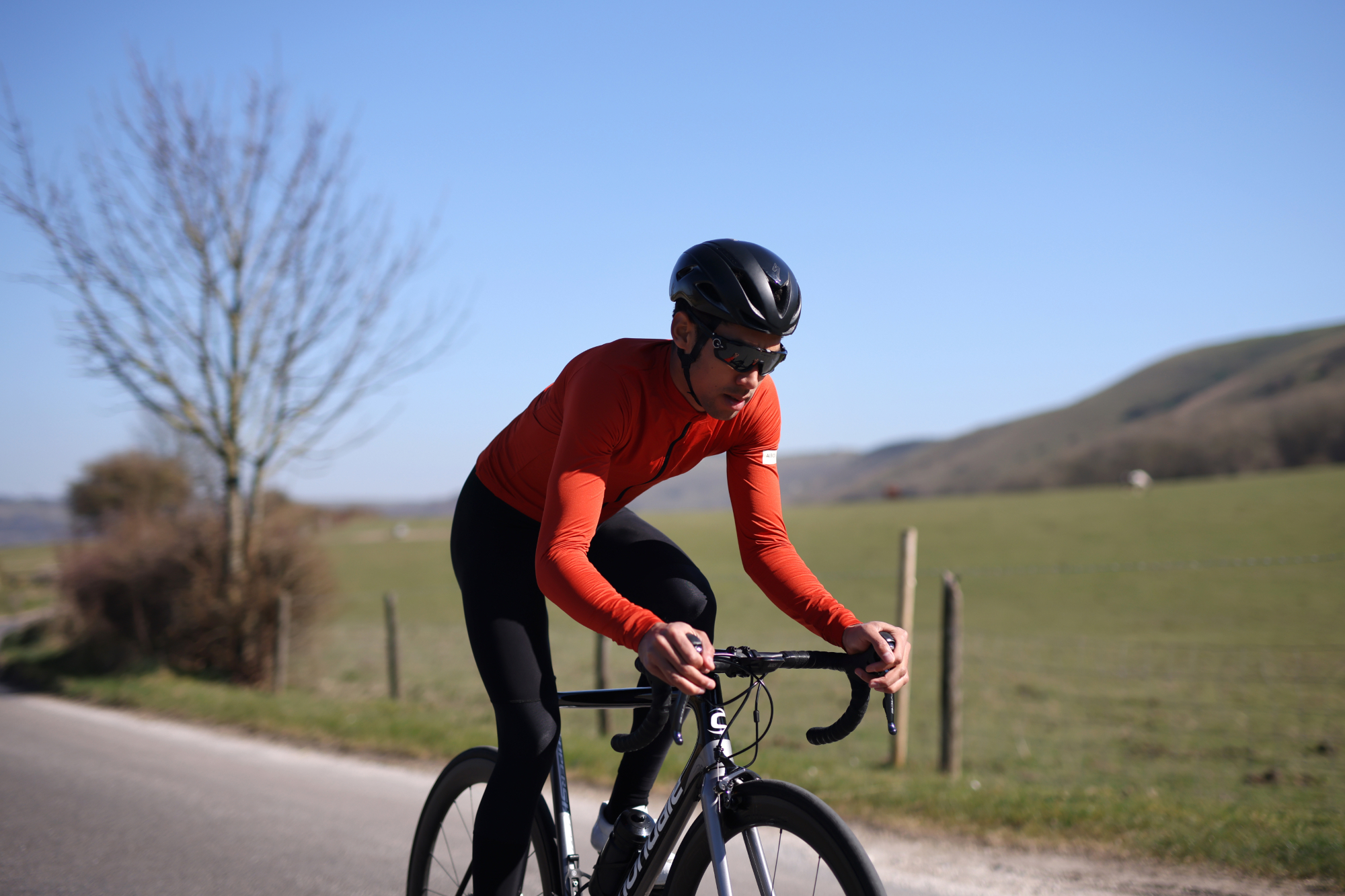Here’s why cycling workouts with short recoveries are so effective - like this 30s on, 30s off session
Do this workout if you want to improve your ability to do short, sharp, repeated efforts with limited rest


The latest race content, interviews, features, reviews and expert buying guides, direct to your inbox!
You are now subscribed
Your newsletter sign-up was successful
Designed to improve your ability to put out hard efforts repeatedly with limited rest, this 30s on, 30s off session is a progression from the 20/40s cycling workout that we've previously talked about.
It improves your capacity to tolerate a high heart rate for extended periods of time and your resistance to the build-up of fatiguing metabolites.
After warming up, you’ve got 10 sets of 30 second efforts at 130-140 per cent of Critical Power, followed by 30 seconds of very easy pedalling. After this block, recover at 50 to 60 per cent of Critical Power for 10 minutes, and then repeat the 30/30s block.
The workout
To download the session click on the embedded graph above. If you’re not already set up on TrainerDay it’ll ask you to register for an account - it’s free to do so and it’s free to download the session.
Golden rule
Don’t go full out on the first 30 second interval or you will struggle immensely with the following efforts. To start with, the 30 seconds at 130-140 per cent of CP will feel easy but, as the session progresses and fatigue builds, the efforts will start to feel more and more difficult. So, keep to the recommended power and don’t overdo it.
Simply explained
This cycling workout targets similar adaptations and stimuli to a 20/40s cycling workout. However, these 30/30s efforts put additional strain on the cardiovascular system as the effort duration is increased and the recovery portion is reduced.
So, rather than being a ‘sprint/recover’ kind of effort, these are a bit more aerobically challenging. Expect to see a higher average heart rate over the course of the effort block even though the power is a bit lower for each effort.
The latest race content, interviews, features, reviews and expert buying guides, direct to your inbox!
Let’s geek out
Due to working at a power that is still above Maximal Aerobic Power (MAP), these efforts still elicit the same fatigue mechanisms as 20/40s. However, with the efforts now longer and the rest reduced, the heart rate response is more like a threshold one for the 10 minute block.
Therefore, heart rate is elevated to a higher level and does not recover as much. This additional stress helps us to become better at dealing with the psychological fatigue that comes from reaching a high heart rate and then attempting to recover from it quite quickly.
Focusing on both deep breaths in and out during the recovery phase can be useful for reducing our heart rate more quickly, thus improving our capacity to recover and also clear metabolites.
Sunny out? How about…

These efforts can be done quite comfortably outdoors, either on a 10 minute flat or rolling section of road, or on a 10 minute climb. However, be aware that, on a climb, it may be more difficult to recover at a low enough intensity, so it will be important to get your gearing right for both the effort sections and the recovery sections.
Don’t worry so much about the time before, after or between the 30/30 blocks – this can be as long as necessary; the main focus is to get the 10 minute effort blocks nailed and recovery can be tailored around those.
Looking for another workout? How about...
- Cycling workout of the week #1: 20/40s [50 mins]
- Cycling workout of the week #6: 1 min on, 1 min off [45 mins]
Andy is a Sport & Exercise Scientist, fully qualified and experienced Cycling Coach, Sports Director, Freelance Writer, and Performance Consultant. He spent 3 years riding for a UCI cycling team and 7 years as a BC Elite rider, competing in prestigious events such as the Tour of Britain and the Volta a Portugal.
Graduating with a first-class honours degree in Sport & Exercise Sciences, he continues to pursue his interest in research in the field of Sport Science alongside managing his coaching business, ATP Performance. He also works as a Wind Tunnel operator and Performance Consultant at the Silverstone Sports Engineering Hub, working with individuals, teams, and businesses to optimise performance and develop products.
